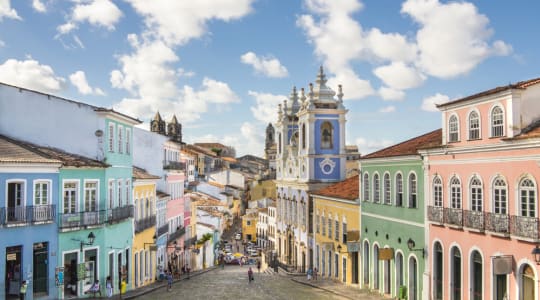Salvador is a city in the northeastern state of Bahia, Brazil. It is the third-largest city in the country, with a population of over 2.8 million people. Salvador was the first colonial capital of Brazil and has a rich history and cultural heritage that is reflected in its architecture, music, dance, and cuisine.
The city has a tropical climate, with warm temperatures year-round. Some of the main tourist attractions in Salvador include its beaches, colonial architecture, museums, and churches. The historic center of Salvador, known as Pelourinho, is a UNESCO World Heritage Site and is known for its colorful colonial buildings and lively atmosphere.
Some of the notable landmarks and attractions in Salvador include the Pelourinho Square, the Sao Francisco Church and Convent, the Elevador Lacerda (a 72-meter-tall elevator that connects the upper and lower parts of the city), the Mercado Modelo (a bustling market that sells local crafts and souvenirs), and the Dique do Tororo (a lake featuring statues of Orixas, or deities, of the Candomble religion).
Salvador is also famous for its music and dance, particularly its Afro-Brazilian styles such as samba, capoeira, and axé. The city hosts several music festivals throughout the year, including the Carnaval de Salvador, one of the largest and most famous Carnaval celebrations in Brazil.
The cuisine of Salvador is also renowned, with many dishes featuring seafood, spices, and coconut milk. Some popular dishes include acarajé (deep-fried black-eyed pea fritters stuffed with shrimp, onions, and peppers), moqueca (a fish stew with tomato, onion, and palm oil), and vatapá (a creamy stew made with shrimp, bread, coconut milk, and peanuts).
Explore Near Salvador Brazil
Discover 2 attractions, 5 cities, and 1 airport within 75km. Perfect for planning day trips, finding connecting flights, or discovering new destinations to explore during your visit.
Nearby Attractions & Places to Visit
2 destinations within 0m - 27.4km from your location


Nearby Cities Worth Exploring
5 destinations within 1.6km - 35.1km from your location
Airports Near Salvador Brazil
1 destination within 18.3km from your location




